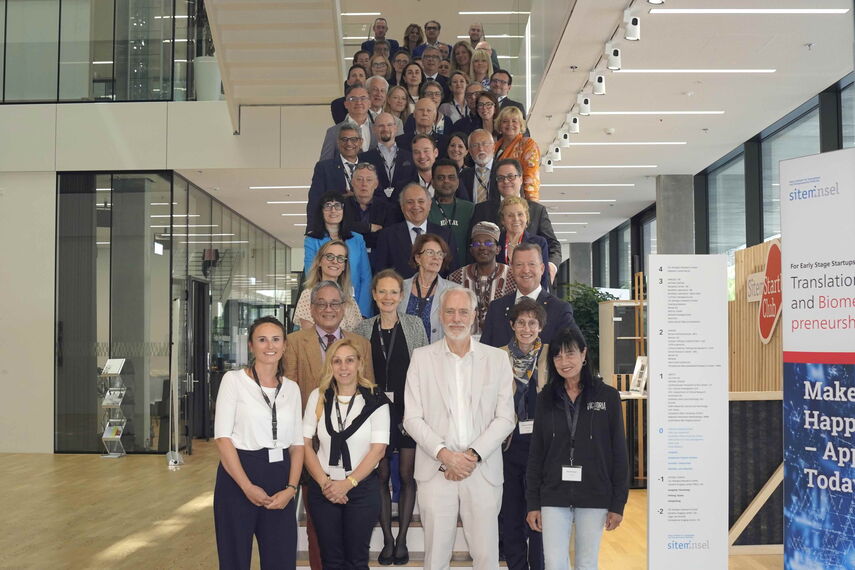Reshaping Brain Health: International experts call for a Unified, Human-Centred Global Strategy
On June 12–13, 2025, Bern, Switzerland hosted the international symposium. Organized by the SFCNS Swiss Brain Health Plan and the Swiss Brain Health Foundation, the event brought together global leaders in neurology, psychiatry, public health, education, and policy to promote a more integrated and human-centered understanding of brain health.
Opening the Dialogue: Shared Commitments Across Borders
The event opened at the Embassy of Italy in Bern, with welcome remarks from Ambassador G. Cornado, as well as representatives from the Swiss Federal Department of Foreign Affairs, Italy’s Ministry of Health, and Cameroon’s Ministry of Public Health.
Professor Claudio Bassetti, Chair of the SBHP, introduced the symposium’s core message: the urgent need to move from fragmented systems toward a unified global brain health strategy. Katrin Seeher of the World Health Organization (WHO) reinforced this by outlining the WHO’s Brain and Mental Health Plans and highlighting the urgent need for global action.
Global Organizations in Action
The first session brought together major international organizations, each presenting their contribution to advancing brain health. From the European Brain Council’s push for a pan-European partnership to the World Federation of Neurology’s focus on global standardization, the message was clear: collaboration is essential. Representatives from various societies—including psychiatry, neurology, pediatric neurology, and neuropsychopharmacology—converged on the need to break down silos, integrate knowledge, and create accessible, patient-centered solutions.
National and Regional Plans: A Shared Journey
In a series of sessions that followed, countries and regions from across the globe showcased their diverse yet converging efforts. India and Cameroon demonstrated how national development could be linked to brain capital, while Singapore presented community-based strategies like Active Aging Centres and school reforms that prioritize well-being. Argentina’s focus on Alzheimer's misdiagnosis underscored the importance of awareness and precision in diagnostics, and the global #BrainHealthChallenge2025 served as a call for unified action.
Switzerland's own contributions were spotlighted in a dedicated session. National and local actors presented preventive models, policy integration, and leadership frameworks that could serve as templates for others. In subsequent discussions, nations including Italy, the USA, and Canada were highlighting the role of AI and shared innovations for intersectoral coordination, gender-specific care or inclusive access to mental health services, while Nordic and Central European countries focused on educational reforms and societal frameworks that embed brain health into everyday life.
The symposium also addressed broader societal factors influencing brain health. From the concept of “brain capital” - which reframes cognitive and emotional health as a driver of societal resilience - to the impacts of digitalization and early childhood development, speakers emphasized the need for systems-level thinking.
A Unified Call to Action: One Brain, One Health, One Approach
The resounding conclusion of the symposium was a call to action: to reframe brain health as a core element of human potential, not just the absence of disease. The “One Brain, One Health, One Approach” vision advocates for a comprehensive life-course perspective, cross-sector collaboration, and ethically driven innovation. Equally critical is the inclusion of patients and caregivers in shaping the future of care systems.
In closing, Prof. Claudio Bassetti reminded participants that “Brain health is not only about productivity - it is about identity, meaning, and connection.” The symposium in Bern was more than an academic gathering, it was a catalyst for global unity and purpose. As the world confronts growing neurological and mental health challenges, the time has come for a truly integrated, inclusive, and human-centered response.
One brain. One health. One shared responsibility.
We thank all speakers, moderators, participants, and organizers for their dedication.
